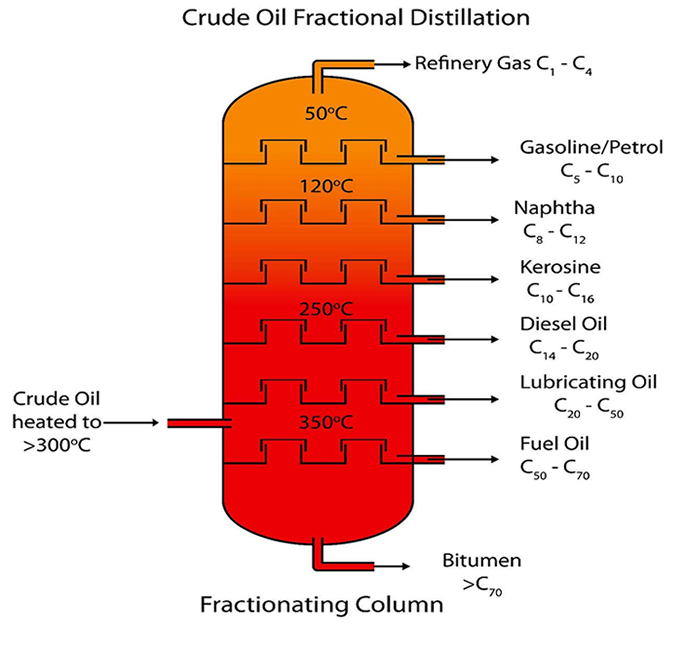The cause of the deterioration of the quality of the lubricating oil is not only caused mainly during the work, but also caused by the improper management of the staff. Therefore, it is necessary to try to prevent the system oil from deteriorating prematurely, prolong the service life and save oil. Some of the following considerations for preventing lubricating oil degradation are summarized below:
- All kinds of oils must be used according to the specified purpose, because adding different types of oils with different quality or quality to the machine can cause various adverse consequences.
- In the process of oil transportation or oiling, the specified sealed containers and tools should be used. Do not put the oil into the dirt container to prevent the oil from being soiled.
- When refueling the machine, be careful not to let dust, dirt and water fall into the oil, because the life of the machine depends to a large extent on the cleanliness of the oil.
- Although oil is not easily volatilized, it is often caused by excessive overflow and loss due to overfilling and leakage. Therefore, when running and adding oil to the machine, be careful not to lose oil.
- When loading oil into the fuel tank and oil drum, do not exceed the limit of their capacity. The space in which the oil is thermally expanded must be left in the container to prevent the oil from being thermally expanded and causing leakage of the overflow.
- Always check the cover of the machine casing and system oil reservoir and the tightness of the pipe joints. Tighten the joints of the machine or replace the gasket to prevent oil leakage.
- After releasing the waste oil, thoroughly clean and wipe the system before filling in the new oil.
- The moisture and sludge deposited in the oil should be removed periodically or continuously.
- Keep the lubrication of the machine well, and do not subject the machine to large wear, because the wear of the machine will increase the clearance and the oil will be more polluted.
- The temperature of the oil generally does not exceed 50~60 ° When the amount of heat released is large, the cooling condition of the oil should be guaranteed.
- In air compressors, the temperature at the outlet is not allowed to exceed 160~170 °
- Lubricating oil filters should be installed in automobiles and tractors to continuously perform fine filtration during operation to prevent lubricating oil in the engine from becoming waste oil due to accumulation of mechanical impurities and oxidation products.
The impurities of inferior lubricants are mainly:
1, Moisture
The oil should not contain water. The moisture contained in the lubricating oil will damage the lubricating oil film. The lubricating effect is poor, and the organic acid in the oil can accelerate the corrosion of the metal. The moisture will also cause corrosion of the mechanical equipment and cause Failure of the additive in the lubricating oil will also cause the low-temperature fluidity of the lubricating oil to deteriorate or even freeze, block the oil passage, and hinder the circulation and supply of the lubricating oil. Therefore, the lubricating oil must be checked for moisture before use, and dehydrated if necessary.
2, Ash
After the lubricating oil is completely burned under the specified conditions, the remaining incombustible residue is called the ash of the lubricating oil, and the ash is mainly composed of the metal salt and the metal oxide formed after the combustion. The presence of ash will increase the amount of carbon accumulated during use of the lubricating oil. If the ash is too high, it will cause wear of the mechanical parts. Therefore, the content of ash in the lubrication should be reduced or controlled.
3, Carbon residue
The lubricating oil is heated without being ventilated, and a coke-like residue is formed by evaporation to be called carbon residue. Carbon residue is an indirect indicator of the content of gelatinous substances and unstable substances in lubricating oils, and also a sign of the degree of refinement of mineral lubricating base oils. The lubricating oil contains sulfur, more oxygen and nitrogen compounds, high residual carbon, more carbon residue, and a tendency to coke, which increases the friction and wear of mechanical equipment.
4, Mechanical impurities
The lubricating oil is insoluble in the precipitate or suspended matter of gasoline or benzene, and the impurities separated by filtration are called mechanical impurities. The mechanical impurities in the lubricating oil are caused by foreign matter such as dust, mud sand, metal scrap, metal oxide, rust and the like which are mixed in the use, storage and transportation of the lubricating oil. Mechanical impurities will accelerate the wear of mechanical parts during the use of lubricating oil, and will also block the oil circuit and cause lubrication failure. Therefore, the content of mechanical impurities in lubrication should be minimized.

